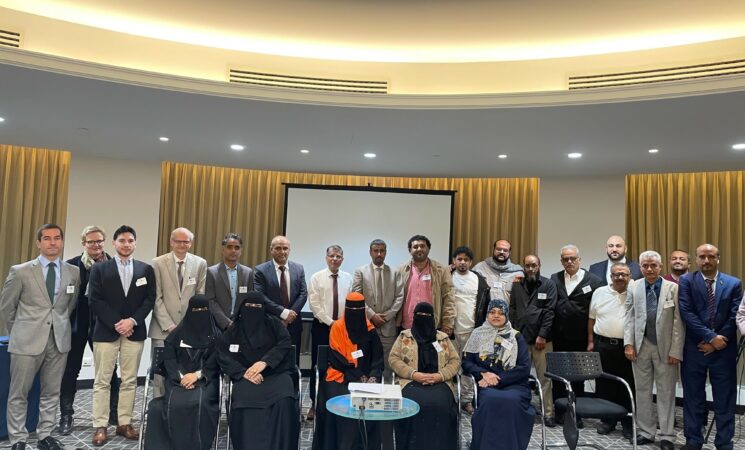In March 2023, the OECD gathered 22 participants including Yemeni stakeholders from central level budgetary and fiscal institutions, as well as international organisations such as the World Bank, the European Union and the OECD. The objectives of the seminar were to address short-term budgetary challenges and build a fiscal framework supporting medium-term economic growth. International experts shared knowledge and experience with representatives from the Ministry of Finance, the Ministry of Planning and International Cooperation, and the Central Bank of Yemen to provide recommendations on actions to strengthen budgetary and fiscal institutions.
The dialogues were organised in the context of the EU-OECD Project on Promoting Economic Resilience in Yemen, they took place in Aman, Jordan.
Yemen’s fiscal revenue has collapsed over recent years, challenging the government’s capacity to fund basic services and pay public sector wages. Vulnerability resulting from a high dependence on oil revenue was exacerbated by the conflict and instability in the global economy. Yemen needs to restore its capacity to carry out basic fiscal functions to foster long-term growth. Fiscal governance is key to restoring trust in public institutions and attract foreign aid. Ensuring accountability and transparency is key for resource mobilisation. Fiscal rules can raise confidence in the sustainability of public finances.
During the event, a series of round tables and peer-learning training activities provided recommendations on actions to strengthen Yemen’s budgetary and fiscal capacities according to three levers:
- Enhance governance by designing systems, processes and tools that ensure the efficient and effective management of budget resources.
- Mobilise resources by taking a two-step approach, first restoring the capacity to raise revenue in the short term, then gradually moving to broader reforms to build stronger fiscal institutions.
- Design fiscal rules, such as balanced budget rules and expenditure ceilings, to act against deficit bias and fiscal complacency, thereby bolstering investors’ confidence.
The EU-OECD project “Promoting Economic Resilience in Yemen” is financed by the European Union and implemented by the Organisation for Economic Co-operation and Development (OECD). Starting in September 2020 and with a total duration of three years, it aims to strengthen the socio-economic resilience of Yemen in order to create viable conditions for economic growth and private sector development. The project is implemented in partnership with the Yemeni Ministry of Planning and International Cooperation.





Leave a Reply
You must be logged in to post a comment.